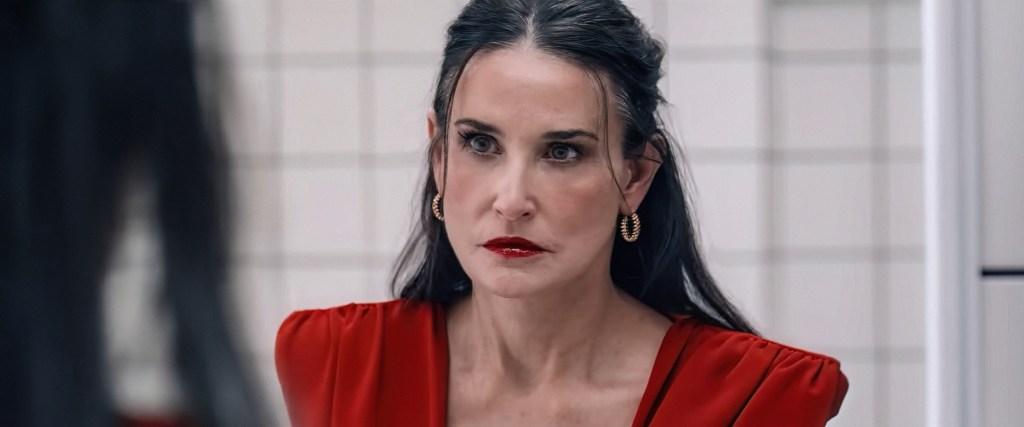Behind the Scenes: A Producer’s Battle to Support a Stylist Amid Oscar Controversy
In an industry often overshadowed by glitz and glamour, the real stories that unfold behind the scenes can be just as riveting. Recently, producer Nicolas Royer has taken a courageous stand in defense of hair stylist Marilyne Scarselli, amidst the swirling controversies surrounding the Oscars. This situation not only highlights the often-overlooked contributions of stylists but also prompts a broader discussion about recognition and equity within the film industry.
The Controversy Unfolds
The Oscar awards, a pinnacle of recognition in the film industry, have faced their share of controversies over the years. This year, however, the spotlight has shifted from merely the films and actors to the crucial behind-the-scenes talent that brings characters to life. Marilyne Scarselli, a seasoned hair stylist, found herself at the center of a heated debate after her work on a critically acclaimed film was seemingly overlooked during the nomination process.
Royer’s involvement began when he noticed the disparity in recognition for Scarselli’s work compared to her peers. While actors often bask in the limelight of awards, the essential roles that stylists and other crew members play can go unnoticed. This reality prompted Royer to spearhead a campaign advocating for Scarselli’s rightful recognition.
A Call for Equity in Recognition
At its core, the movement is about more than just one individual’s recognition. It raises significant questions about equity within the film industry. Why do certain roles receive accolades while others remain in the shadows? Royer argues that every element of filmmaking deserves acknowledgment, especially those that directly contribute to the storytelling process.
- Visibility of Stylists: Stylists play a critical role in shaping a character’s identity. The hair and makeup can significantly influence how audiences perceive a character’s personality and motivations.
- Historical Context: Traditionally, the Oscars have favored performances and direction, often neglecting the technical artistry involved in hairstyling and makeup.
- Inclusion in Discussions: Royer’s campaign aims to include stylists and other crew members in conversations about both awards and industry standards.
The Power of Social Media
In today’s interconnected world, social media has become a powerful tool for advocacy. Royer’s campaign quickly gained momentum online, with numerous industry professionals voicing their support for Scarselli and the need for more equitable recognition practices. Platforms like Twitter and Instagram have become rallying points for stylists and other crew members to share their experiences and push for change.
Hashtags such as #RecognizeStylists have surged, bringing attention to the often-unseen contributions of these artists. This grassroots movement not only aims to support Scarselli but also seeks to create lasting change within the industry regarding how all contributors are acknowledged.
Personal Anecdotes from the Industry
Many industry professionals have stepped forward to share their own stories, illustrating the challenges they face when seeking recognition for their work. For instance, acclaimed makeup artist Jane Doe recounted her experience of working on a blockbuster film where her contributions were overshadowed by the lead actors’ performances. “It’s disheartening when you pour your heart into a project, and it feels like your work isn’t valued,” she shared.
Such testimonials reinforce the need for a cultural shift within the film community. The industry must embrace a more inclusive approach, recognizing the collaborative nature of filmmaking. Every brush stroke and hairstyle is a piece of the larger puzzle that contributes to a film’s success.
Why Recognition Matters
Recognition is crucial for several reasons:
- Moral Boost: Being acknowledged for one’s work can significantly boost morale and inspire creativity among artists.
- Career Advancement: Awards often lead to better opportunities and increased visibility for stylists, paving the way for future projects.
- Setting Standards: Recognition helps set industry standards that promote equality and inclusivity, ensuring that all contributors are valued.
Looking Toward the Future
As Royer continues to advocate for Scarselli, the broader implications of this movement are becoming evident. The Oscar controversy has opened a dialogue about how the industry can evolve to be more inclusive and equitable. As audiences increasingly demand authenticity and diversity in storytelling, recognizing the artists behind the scenes becomes paramount.
Industry insiders are hopeful that this momentum will lead to tangible changes in how awards are structured. Discussions about adding new categories specifically for hair styling and makeup have begun to emerge, which could pave the way for a more comprehensive acknowledgment of these essential roles.
The Role of the Audience
While change is often driven by those within the industry, audiences play a significant role as well. Viewers can advocate for stylists by:
- Engaging on Social Media: Sharing and supporting campaigns that highlight the importance of stylists and other crew members.
- Educating Themselves: Learning about the contributions of behind-the-scenes talent can foster greater appreciation for their work.
- Demanding Inclusivity: Audiences can influence the industry by supporting films that showcase a diverse range of contributors.
Conclusion
As the dust settles from the Oscar controversy, the battle championed by Nicolas Royer for Marilyne Scarselli serves as a pivotal moment in the film industry. It’s about more than just awards; it’s about justice, equity, and acknowledging the artistry that goes into every frame of a film. The movement is a call to action for the industry to recognize the vital roles played by stylists and other behind-the-scenes professionals. With continued advocacy and support, there’s hope for a more inclusive future in Hollywood, where every contribution is celebrated, and no one is left in the shadows.
See more CNET Live

